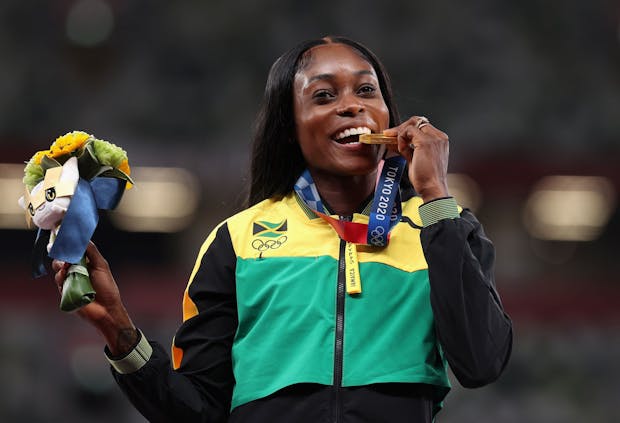World Athletics has taken the unprecedented step of ringfencing a share of its Olympic revenues to reward gold medal winners at the Games.
Speaking in the wake of the announcement, World Athletics president Sebastian Coe dismissed the notion that the move had been motivated to stave off the threat of elite athletes not taking part, nor would it undermine the Olympics.
The allocation of $2.4m (€2.2m) – equal to six per cent of World Athletics’ $39.5m share from Tokyo 2020 – will take effect at Paris 2024.
Each of the 48 victorious athletes will receive $50,000, a figure that falls short of the $70,000 received by gold medal winners at the World Athletics Championships. World Athletics has also made a “firm commitment” to extend the prize money at a tiered level, to Olympic silver and bronze medal winners at Los Angeles 2028.
The governing body, which said it informed the International Olympic Committee’s sports department of its decision “this morning”, becomes the first international federation to offer such a carrot for medal winners at the Olympics.
Coe described the move as a “continuation of a journey we started back in 2015, which sees all the money World Athletics receives from the International Olympic Committee for the Olympic Games go directly back into our sport”.
Interest body Global Athlete has campaigned in recent years for athletes across different sports to receive a share of Olympic monies. However, Coe said that, while he regularly talks to athletes and is aware of their concerns, the decision does not represent a reaction to elite athletes seeking recompense nor was it spurred by the threat of losing them to events such as Russia’s Friendship Games offering financial rewards.
Fielding a question from SportBusiness during a call with assembled media, Coe said: “This is not a response to a threat, this is because it’s the right thing to do.
“We are financially in a position to do this without putting in jeopardy other elements of the sport.”
He added: “We distribute pretty much everything back into the sport, I just wanted the athletes to recognise that their contribution to the Olympic revenue distribution that we receive – whether that’s high enough is an issue for another day – is reflected [for] the contribution they make to the global numbers and the overall success of our sport at an Olympic Games.”
The stance taken by World Athletics will now doubtless lead to pressure from athletes in other Olympic sports looking for their own financial rewards over and above the funding that trickles down through the Olympic Movement in solidarity payments.
“I don’t for one minute think that this is undermining the Olympic philosophy. If anything I hope this builds upon it.” Coe said.
“This was a decision that we took within the sport. It reflects World Athletics’ view that our athletes, who make up 20 per cent in numbers at an Olympic Games, should be recognised.”
Asked why IOC president Thomas Bach wasn’t informed of the prize money decision, Coe said: “This is a matter for World Athletics. I’m sure the Olympic Movement will want to support this because of their commitment to making sure that funds go back into sport…and they would see that this sits comfortably within the same principle.”
He added that, given the bulk of Olympic revenues go back into sport, the new World Athletics initiative “sits behind the same principle”.
In a statement to SportBusiness, the IOC said: “The IOC redistributes 90 per cent of all its income, in particular to the national Olympic committees (NOCs) and international federations (IFs). This means that, every day, the equivalent of $4.2m goes to help athletes and sports organisations at all levels around the world. It is up to each IF and NOC to determine how to best serve their athletes and the global development of their sport.”
Commercial benefits enjoyed by World Athletics in the last 12 months through new sponsorship deals are being directly passed onto the athletes, according to Coe.
He said: “I want the athletes to recognise that there is a correlation between me announcing a few months ago that Sony, Morinaga and Deloitte have joined the partners or suppliers in our sport, and [athletes] gaining some kind of financial security from that sport.”
World Athletics significantly upped prize money at the World Athletics Championships from 2022 onwards, in part due to the federation passing on proceeds from the Russian Athletics Federation’s $2m fine paid for infringing anti-doping rules.
The total sum of money that World Athletics will receive from Paris 2024 is still to be decided as the Association of Summer Olympic International Federations (ASOIF) continues to have what have been at times difficult discussions with the IOC over the federations’ overall share





